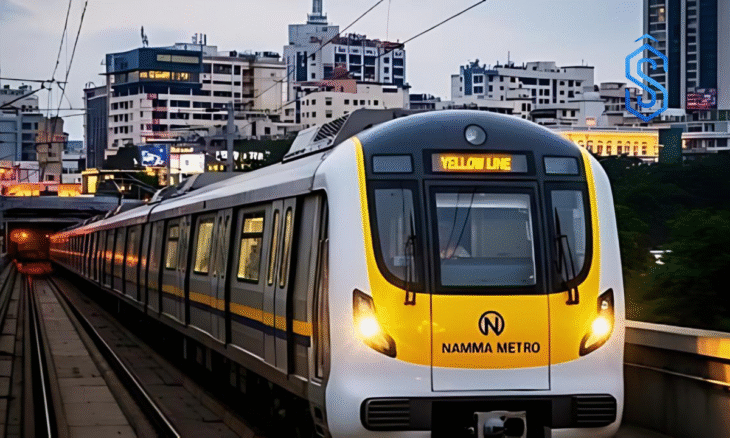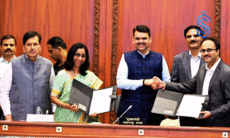Bengaluru: Prime Minister Narendra Modi today inaugurated the Bengaluru Metro Yellow Line, a 19-km stretch from RV Road (Ragigudda) to Bommasandra with 16 stations, built at a cost of around ₹7,160 crore.
This major addition of Bengaluru Metro Yellow Line increases Bengaluru’s operational metro network to over 96 km, enhancing connectivity for lakhs of daily commuters and cutting travel time between key hubs such as Basavanagudi and Electronic City.
Also Read: Pune Comprehensive Mobility Plan: 312 km Metro Network, 80 km BRTS, 19 Flyovers
Bengaluru Metro Yellow Line and Upcoming Orange Line to Serve 25 Lakh Passengers Daily
The Prime Minister also laid the foundation stone for Bengaluru Metro Phase-3, a ₹15,610 crore project that will extend the network by over 44 km with 31 elevated stations, linking major residential, industrial, commercial, and educational areas.
Once operational, the Bengaluru Metro Yellow Line and upcoming Bengaluru Metro Orange Line under Phase-3 are expected to serve nearly 25 lakh passengers daily.
Highlighting the city’s transformation into a global technology and innovation hub, PM Modi described Bengaluru as a symbol of New India’s rise — blending tradition with cutting-edge progress.
He commended the metro project’s innovative public-private partnership model, where companies such as Infosys Foundation, Biocon, and Delta Electronics have co-funded key stations through CSR contributions.
The event also saw the launch of three new Vande Bharat Express trains — from Bengaluru to Belagavi, Amritsar to Shri Mata Vaishno Devi Katra, and Nagpur (Ajni) to Pune. These high-speed services aim to reduce travel time, improve passenger comfort, and strengthen regional trade and tourism.
Also Read: ACES India to Build Shared 5G-Ready Telecom Network for Bengaluru Namma Metro
PM Modi underlined that urban planning and infrastructure are crucial for India’s growth, noting that metro services have expanded from just five cities in 2014 to over 1,000 km across 24 cities today, making India the world’s third-largest metro network.
He urged India to push for technological self-reliance, especially in advanced sectors like AI, semiconductors, and digital payments, while ensuring sustainable, zero-defect manufacturing.
The Prime Minister also emphasized the importance of collaborative governance between the Centre and states to achieve the vision of Viksit Bharat, powered by modern infrastructure and digital innovation.










